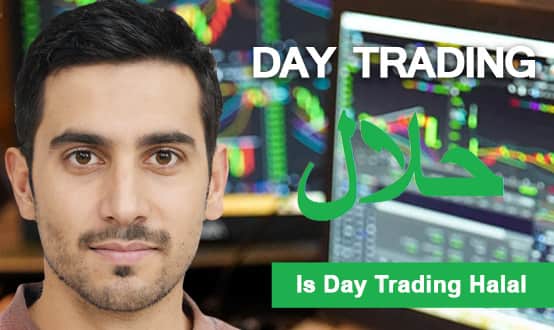In the intricate world of finance, where complex instruments and strategies intertwine, the question of whether options trading aligns with Islamic principles arises as a point of contention. Options, derivatives that grant the holder the right—but not the obligation—to buy or sell an underlying asset at a predetermined price, present a unique challenge to the ethical framework of Islamic finance.

Image: atradeortwo.com
Understanding the nuances of Islamic finance becomes paramount in deciphering the permissibility of options trading. Islamic principles, rooted in the Quran and Sunnah, prioritize ethical conduct and prohibit activities deemed as haram (forbidden). This includes practices like gambling, interest-based transactions (riba), and speculation based on uncertainty (gharar). Hence, the question of whether options trading falls within the purview of these rulings requires a meticulous examination.
A Deep Dive into Islamic Finance: Key Principles
1. Prohibition of Riba (Interest)
At the heart of Islamic finance lies the prohibition of riba, usury, or interest. This principle stems from the Quranic injunction against taking or giving interest, as it is considered an unfair and exploitative practice.
2. Avoidance of Gharar (Uncertainty)
Gharar, meaning uncertainty or ambiguity, is another cornerstone of Islamic finance. Transactions involving excessive uncertainty that can lead to exploitation or unfair advantage are prohibited. This principle aims to promote fairness and transparency in economic dealings.

Image: kuyfafa.blogspot.com
3. The Importance of Maqasid al-Shariah (Objectives of Islamic Law)
Maqasid al-Shariah, the objectives of Islamic law, encompass the preservation of life, intellect, religion, lineage, and property. Any financial activity that conflicts with these objectives is viewed as incompatible with Islamic principles.
Interpreting Options Trading Through an Islamic Lens
Whether options trading aligns with Islamic principles hinges on several key considerations:
1. Underlying Asset
The type of underlying asset in an options contract plays a crucial role in determining its permissibility. Options on assets that are permissible in Islamic finance, such as shariah-compliant stocks or commodities, are generally considered more acceptable. However, options on assets that are prohibited, such as conventional bonds or derivatives based on interest-bearing instruments, are deemed haram.
2. Nature of the Contract
The specific terms of the options contract also influence its permissibility. Options contracts that involve a fixed price and clear terms, minimizing uncertainty and the potential for speculation, are generally viewed as more compliant with Islamic finance principles. However, options contracts with highly speculative elements, complex terms, or contingent payouts could be considered haram.
3. Intent and Purpose
The intention and purpose behind the options trading activity are paramount in Islamic finance. Options trading used for legitimate business purposes, such as hedging against risk or managing portfolio exposure, could potentially be deemed permissible. However, engaging in options trading purely for speculative gains, seeking to profit from market fluctuations, could fall under the prohibition of gharar.
The Evolving Landscape of Islamic Finance and Derivatives
The world of Islamic finance is constantly evolving, with scholars and institutions grappling with the complexities of integrating contemporary financial instruments into the framework of Islamic principles. The rise of shariah-compliant derivatives, including options contracts that adhere to certain ethical guidelines, reflects this ongoing effort. These developments aim to provide investors with a wider range of options that align with Islamic values while maintaining the integrity of the financial system.
Finding Ethical Options: A Path to Compliance
For individuals seeking to engage in options trading while adhering to Islamic principles, several key considerations can help guide their choices:
1. Consulting with Islamic Scholars
Seeking guidance from qualified Islamic scholars and financial experts well-versed in the nuances of Islamic finance is paramount. Their expertise can help individuals navigate the ethical complexities associated with options trading and make informed choices consistent with their Islamic beliefs.
2. Selecting Shariah-Compliant Instruments
Focusing on shariah-compliant instruments, such as options on permissible underlying assets with transparent terms and clear risk profiles, is crucial. Investing in options through reputable Islamic financial institutions that adhere to strict shariah compliance procedures can further increase ethical alignment.
3. Maintaining Ethical Intent
Ensuring that the purpose behind options trading aligns with Islamic values is vital. Utilizing options for legitimate risk mitigation, portfolio management, or hedging purposes while avoiding speculation or seeking excessive profits can contribute to ethically responsible investing.
Is Options Trading Haram
Conclusion: Navigating the Interplay of Finance and Faith
The realm of options trading presents a complex intersection of finance and faith. While some options trading activities, especially those involving speculative or uncertain elements, may be deemed haram in Islamic finance, others, particularly those involving shariah-compliant instruments and ethical purposes, could be considered permissible. Navigating this nuanced landscape necessitates thorough research, consultation with Islamic scholars, and a mindful approach to ensure alignment with Islamic principles. Continuing dialogue and research within the field of Islamic finance will further refine the ethical framework and provide investors with clearer guidelines for responsible and compliant financial practices.






